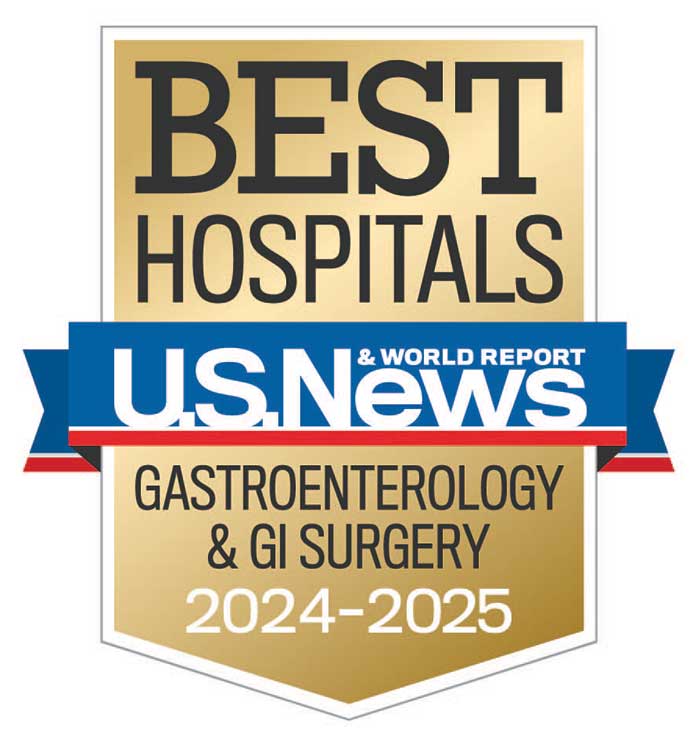Beyond Colonoscopy: Open-Access Endoscopy for Advanced Endoscopy Procedures
Many tertiary-level endoscopy centers provide routine endoscopy services, such as colonoscopy, through an open-access endoscopy (OAE) model, which allows primary care and community physicians to refer patients without the delays of requiring a preliminary office visit with a specialist. However, unlike most tertiary care centers, Penn State Health Milton S. Hershey Medical Center also operates an OAE model for interventional endoscopy services. Associate Professor of Medicine Dr. Matthew T. Moyer states, “The program that we’ve developed is efficient, effective and safe. It significantly increases access for our referral partners and decreases waiting time for patients – and often, when patients have oncologic or other serious issues, that time-to-treatment is critical.”
Among the advanced interventional procedures that gastroenterologists at Penn State Health perform are endoscopic retrograde cholangiopancreatography, endoscopic ultrasound/fine needle aspiration with in-room cytology, endoscopic mucosal resection and endoscopic submucosal dissection (EMR/ESD), ablation of precancerous conditions, device-assisted enteroscopy, luminal stenting and other advanced endoscopic procedures.
One of the most successful aspects of the OAE system is the EMR/ESD program for tumor resection. As an example, if a community endoscopist finds a mass lesion that is not safe to resect during a conventional endoscopy, the patient can be easily referred to the Penn State Health EMR/ESD Program via a standardized process. The case is reviewed by a physician, the patient dispositioned and educated, the procedure scheduled promptly and the tumor resected endoscopically so the patient can return to his or her own local doctor for routine surveillance. The success of the program begins with two specialized nurse clinical case managers, Eileen Gagliardi and Melissa Kelly, who facilitate efficient communication between the patient, the referring physician and the endoscopist.
Dr. Moyer notes that the “open access” aspect of the EMR/ESD program would not be possible without these care coordinators, including Kelly, BSN, RN, CGRN. “I am essentially a navigator for patient care,” she says. “I have a comprehensive discussion with each patient. We review the medical history, provide education about the condition, specifics of the procedure, review pre-procedure instructions and address any concerns the patient may have.”
The success of this approach is reflected in the information below, which depicts its steady and significant growth from year to year.
Number of open access colon EMR/ESD per year
- 2011: 45
- 2012: 93
- 2013: 102
- 2014: 135
- 2015: 189
- 2016: 279
- 2017: 237
- 2018: 365
Dr. Moyer notes that not all patients are appropriate for the OAE system and that complex or high-risk patients may still require a preoperative clinic evaluation. However, the OAE program at Penn State Health exemplifies the institution’s commitment to patient-centered care, removing “phone trees,” long wait times, and one-size-fits-all education in favor of providing a compassionate and customized experience. “The program has been hugely successful, and we’re going to continue to build on that.”

Matthew T. Moyer, MD, MS
Professor, Department of Medicine, Division of Gastroenterology and Hepatology, Penn State Cancer Institute
Phone: 717-531-4950
Email: mmoyer@pennstatehealth.psu.edu
Fellowship: Gastroenterology, Penn State Health Milton S. Hershey Medical Center, Hershey, Pa.
Residency: Internal Medicine, Penn State Health Milton S. Hershey Medical Center, Hershey, Pa.
Medical School: Penn State College of Medicine, Hershey, Pa.
Connect with Matthew T. Moyer, MD, MS, on Doximity

